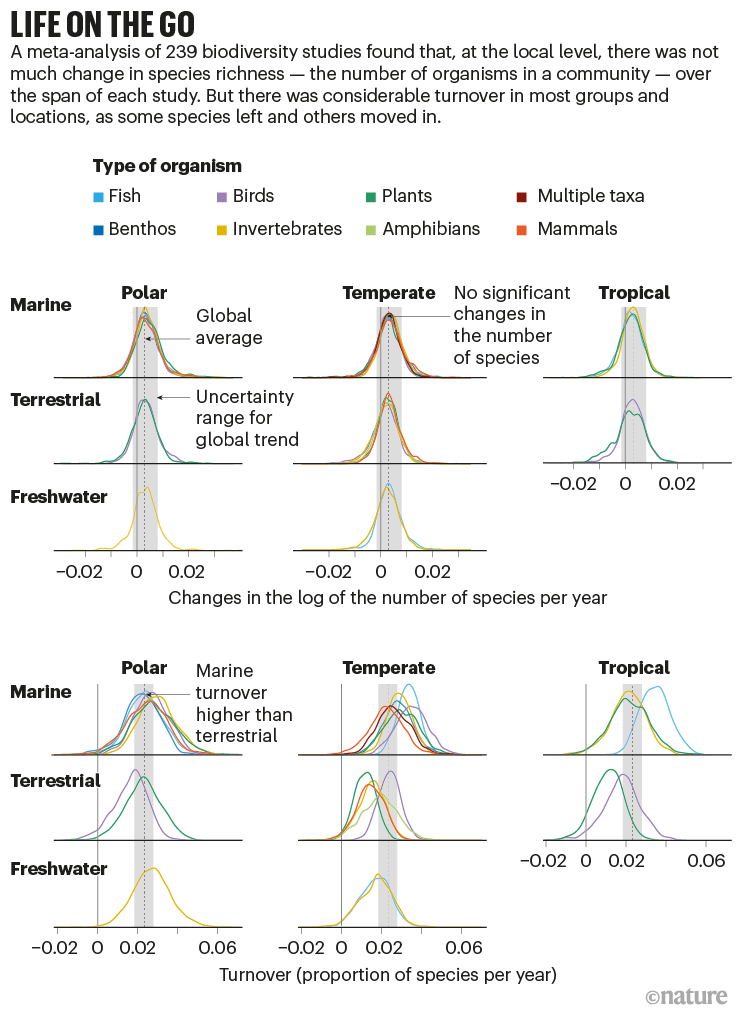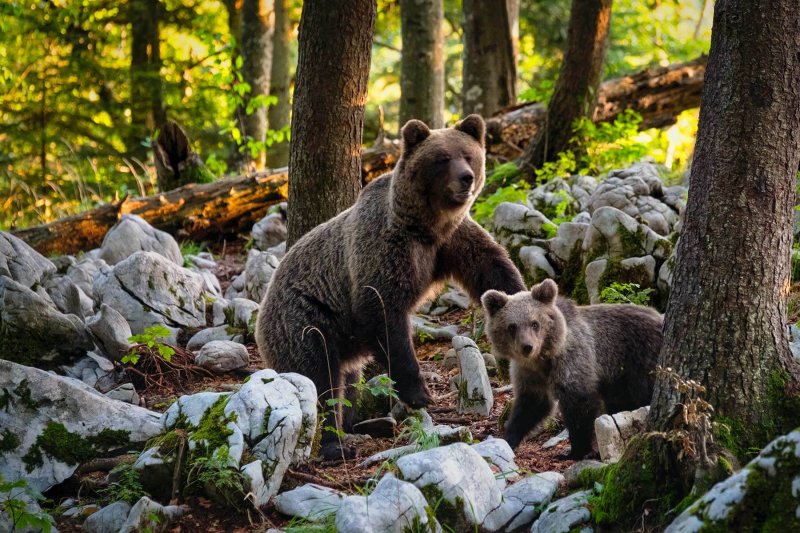[Mark] Vellend, who teaches at the University of Sherbrooke in Quebec, Canada, poses a question to his students every year: if they were to count the plant species in the province, would the number have gone up or down since Europeans arrived?
Most students so far have got it wrong. “Many of them are surprised to learn that there’s 25% more [species] than there were 500 years ago, before people of European origin laid a foot here,” Vellend says.
Something odd is going on in biodiversity studies.
[S]cientists naturally assumed that they would find precipitous declines in biodiversity nearly everywhere they looked. But they haven’t. And a consensus is emerging that, even though species are disappearing globally at alarming rates, scientists cannot always detect the declines at the local level.
Some species, populations and ecosystems are indeed crashing, but others are ebbing more slowly, holding steady or even thriving. This is not necessarily good news. In most places, new species are moving in when older ones leave or blink out, changing the character of the communities.
And that has important implications, because biodiversity at the small scale has outsize importance; it provides food, fresh water, fuel, pollination and many ecosystem services that humans and other organisms depend on.

































